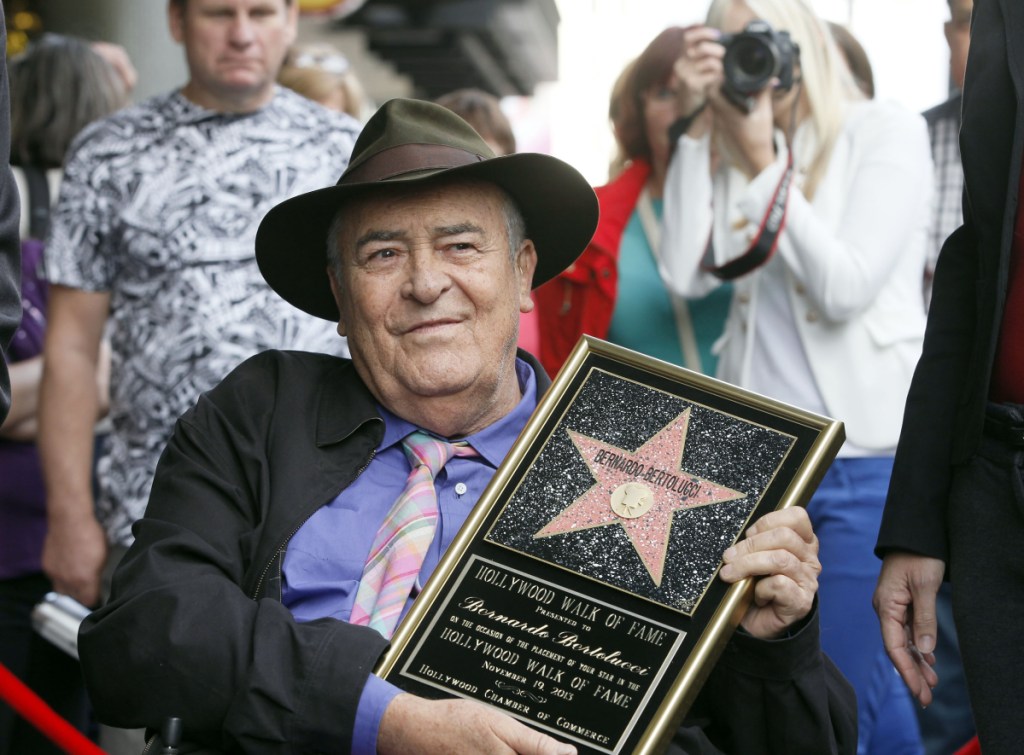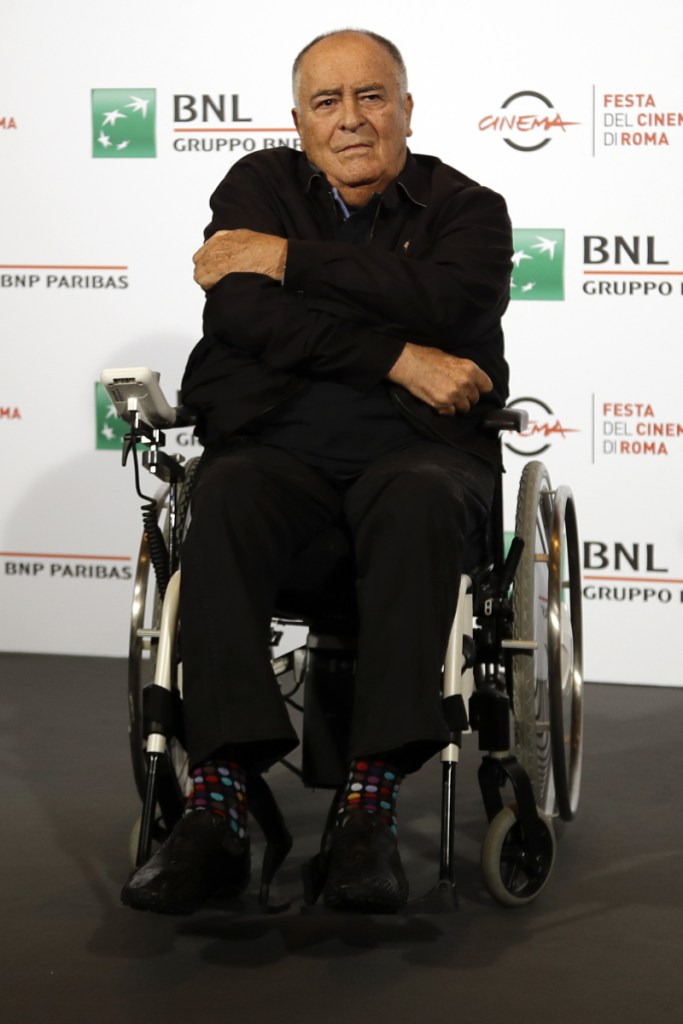ROME — Italian film-maker Bernardo Bertolucci, who won Oscars with “The Last Emperor” and whose erotic drama “Last Tango in Paris” enthralled and shocked the world, died Monday. He was 77.
“He will be remembered among the greatest in Italian and world film,” the Venice Film Festival, which awarded Bertolucci a lifetime achievement award in 2007, said in a statement.
Bertolucci’s movies often explored the sexual relations among characters stuck in a psychological crisis, as in “Last Tango,” which was banned in his own Italy for over a decade. The self-professed Marxist also did not shy away from politics and ideology, as in “The Conformist,” which some critics consider Bertolucci’s masterpiece.
He was honored for lifetime achievement at the Cannes film festival in 2011, when he was already wheelchair-bound.
“Maybe I’m an idealist, but I still think of the movie theater as a cathedral where we all go together to dream the dream together,” he said upon receiving an award from the Director’s Guild of America for his 1987 film “The Last Emperor.”
That movie handed Bertolucci his greatest success. In 1988 it won all the nine Academy Awards that it had been nominated for – including best movie and best director.
But it was with “Last Tango” that Bertolucci shot to stardom, and notoriety. The film, starring Marlon Brando and Maria Schneider as a middle-aged man and younger woman who engage in a brutal sexual relationship in a bare Paris apartment, shocked the world and incurred censorship in his native country.
The movie was banned in Italy just after its release in 1972, and was not released again until 1987. The case went back and forth in the courts until the high criminal court banned the film in 1976 and ordered all copies confiscated and destroyed. Bertolucci, Brando and Schneider, as well as producer Alberto Grimaldi, were sentenced to two months in jail and a fine of $40 each – although the jail terms were suspended.
Schneider herself would say she was traumatized by the movie. The actress, who died in 2011, was just 19 during filming and told the Daily Mail in 2007 that a rape scene involving a stick of butter was included without warning.
“I should have called my agent or had my lawyer come to the set because you can’t force someone to do something that isn’t in the script, but at the time, I didn’t know that,” she said.
“Marlon said to me: ‘Maria, don’t worry, it’s just a movie,’ but during the scene, even though what Marlon was doing wasn’t real, I was crying real tears. I felt humiliated and to be honest, I felt a little raped, both by Marlon and by Bertolucci. After the scene, Marlon didn’t console me or apologize. Thankfully, there was just one take,” she said.
Bertolucci then embarked on his most ambitious project, a four-hour epic tale on the lives of two boys – Gerard Depardieu and Robert De Niro – through the political upheavals of the past century in Italy. The movie – “1900” – won some critical praise, but ended up a spectacular commercial flop.
Bertolucci’s later movies included “The Sheltering Sky,” featuring Debra Winger and John Malkovich as an American couple trying to inject new life into their relationship during a trip to Africa. The 1990 work won Bertolucci a nomination at the Golden Globes.
He also directed “Little Buddha” in 1993 with Keanu Reeves; “Stealing Beauty” in 1996 starring Liv Tyler; and “The Dreamers,” an erotic drama set against the 1968 student riots in Paris – starring Eva Green and Louis Garrel in 2004.
Copy the Story LinkSend questions/comments to the editors.




Success. Please wait for the page to reload. If the page does not reload within 5 seconds, please refresh the page.
Enter your email and password to access comments.
Hi, to comment on stories you must . This profile is in addition to your subscription and website login.
Already have a commenting profile? .
Invalid username/password.
Please check your email to confirm and complete your registration.
Only subscribers are eligible to post comments. Please subscribe or login first for digital access. Here’s why.
Use the form below to reset your password. When you've submitted your account email, we will send an email with a reset code.